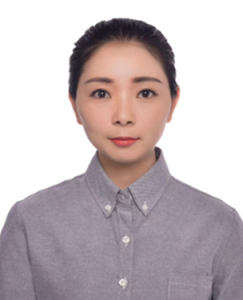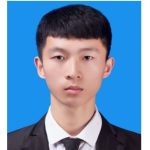Ting Pan: The Plant Cell First Author
 Ting Pan, co-first author of “APC/CCDC20 targets SCFFBL17 to activate replication stress responses in Arapidopsis”
Ting Pan, co-first author of “APC/CCDC20 targets SCFFBL17 to activate replication stress responses in Arapidopsis”
Current Position: Postdoc, Huazhong Agricultural University
Education: Ph.D., Sichuan University, China
Non-scientific Interests: Reading, Exercise
Brief bio: I joined Prof. Shunping Yan’s team at Huazhong Agricultural University as a postdoc in 2018. My research focuses on how plants respond to DNA replication stress. In a previous study, we found that the protein kinase WEE1 can phosphorylate FBL17, an E3 ubiquitin ligase, further promote its polyubiquitination and degradation. WEE1-FBL17 model is required for cell cycle progression, and activates replication stress responses (Nature Plants, 2021). In this study, we revealed that the E3 ubiquitin ligase APC/CCDC20 mediates the polyubiquitination and degradation of FBL17. WEE1 phosphorylates the co-activator of APC/C, APC10, which enhances the interaction between FBL17 and CDC20, an activator of APC/C. In the future, I will continue to explore more mechanisms for replication stress responses.
发表论文:APC/CCDC20 targets SCFFBL17 to activate replication stress responses in Arabidopsis
姓名:潘婷
目前就职:华中农业大学,博士后
教育背景:四川大学,理学博士学位
兴趣爱好:阅读,运动
个人简介:我于2018年以博士后身份加入华中农业大学严顺平教授团队。我主要研究是植物如何应答DNA复制胁迫。在之前的研究中,我们发现蛋白激酶 WEE1 可以磷酸化E3 泛素连接酶FBL17,并促进 FBL17 多聚泛素化和降解. WEE1-FBL17途径调控细胞周期进程,从而激活复制胁迫应答(Nature Plants,2021)。 在这项研究中,我们发现 E3 泛素连接酶 APC/CCDC20 介导 FBL17 的多聚泛素化和降解。 WEE1 磷酸化APC10(APC/C 的共激活蛋白),从而增强 FBL17 和 CDC20(APC/C 的激活蛋白)之间的相互作用。 未来,我将继续探索更多的复制胁迫应答机制。



